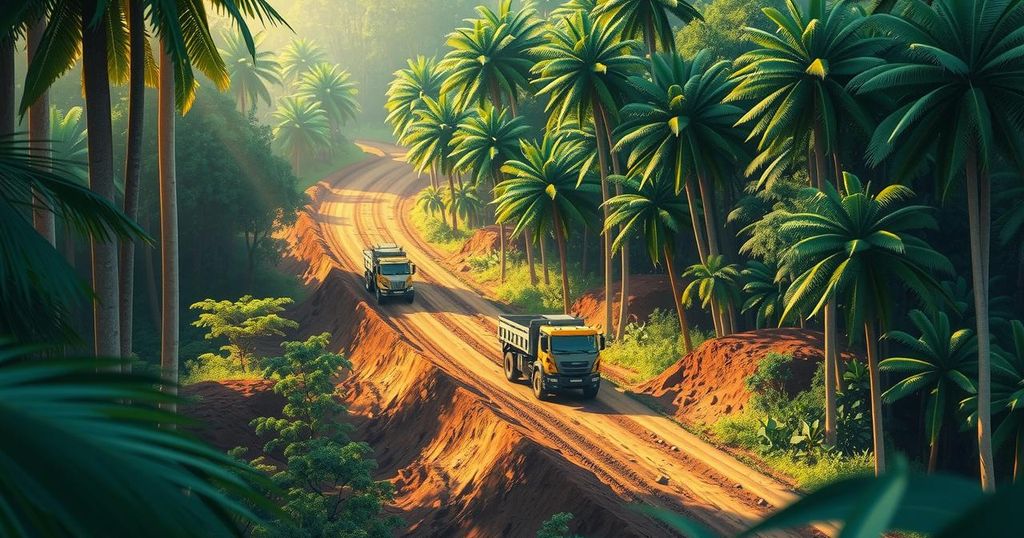Brazil’s Controversial Highway Construction for COP30: Environmental Concerns Amidst Deforestation

Brazil is preparing to host COP30 in Belém, which will gather around 50,000 participants. Ironically, the construction of Avenida Liberdade, a new highway intended to alleviate traffic for the summit, is leading to extensive deforestation in the Amazon rainforest. Local residents express concerns over lost livelihoods, while the government defends the project, claiming it will feature sustainable infrastructure. Experts warn of the ecological damage and critique the lack of consideration for affected communities.
Brazil is set to host COP30, the United Nations’ annual climate summit, from November 10 to November 21, 2024, in Belém. This important event is expected to attract approximately 50,000 attendees, including numerous world leaders. However, a concerning development has emerged, as vast areas of the Amazon rainforest are being cleared to construct a highway intended to facilitate travel for this summit.
The new four-lane highway, dubbed Avenida Liberdade or ‘Avenue of Liberty’, is designed to ease congestion in Belém, a city with a population exceeding 2 million. Spanning over 13 kilometers, the highway will connect existing road networks and provide additional access routes for the Belém Metropolitan Region. Construction has commenced, with roughly 20 percent of the work completed, as heavy machinery operates on the forest floor.
The environmental impact of this project has sparked significant concern. Claudio Verequete, a local resident, expressed distress over the loss of açaí berry trees and the impact on his family’s income. He lamented, “Everything was destroyed. Our harvest has already been cut down.” He voiced fears about potential further development that could displace his community, emphasizing the lack of governmental compensation for those affected.
Despite the environmental concerns, President Luiz Inacio Lula da Silva supports the highway project. He posits that COP30 will focus on highlighting the needs of the Amazon while showcasing Brazil’s stewardship of the rainforest. Secretary Adler Silveira of the state government described the project as an “important mobility intervention,” asserting that it will feature wildlife crossings, bike lanes, and solar lighting to support sustainable transportation.
Experts remain skeptical of the government’s narrative. Professor Silvia Sardinha, a researcher, noted that deforestation leads to significant ecological losses, including reduced habitat for wildlife. She criticized the disconnect between governmental discussions and the experiences of local residents, emphasizing that their voices are often overlooked.
Rachael Garrett, a conservation professor, warned that constructing highways within the Amazon could initiate a destructive “fishbone pattern” of deforestation, further jeopardizing this vital ecosystem. The Amazon rainforest, which covers an area twice the size of India, plays a crucial role in regulating the global climate and harbors a wealth of biodiversity.
As COP30 approaches, civic groups anticipate participating in discussions, particularly given Brazil’s more open stance toward protests compared to recent host countries. The necessity for nations to strengthen their commitments to reduce greenhouse gas emissions adds urgency to the conference’s objectives, making the contentious highway project even more poignant.
In summary, the construction of a highway for the upcoming COP30 summit in Brazil raises severe environmental concerns, highlighted by the demolition of extensive sections of the Amazon rainforest. While the government defends the project as a means to enhance accessibility and promote sustainable transport, locals and experts question the ecological impact and the neglect of community voices. As COP30 aims to address climate commitments, the irony of environmental degradation for a climate-focused summit underscores the complexities of balancing development and conservation in critical ecosystems like the Amazon.
Original Source: www.firstpost.com





